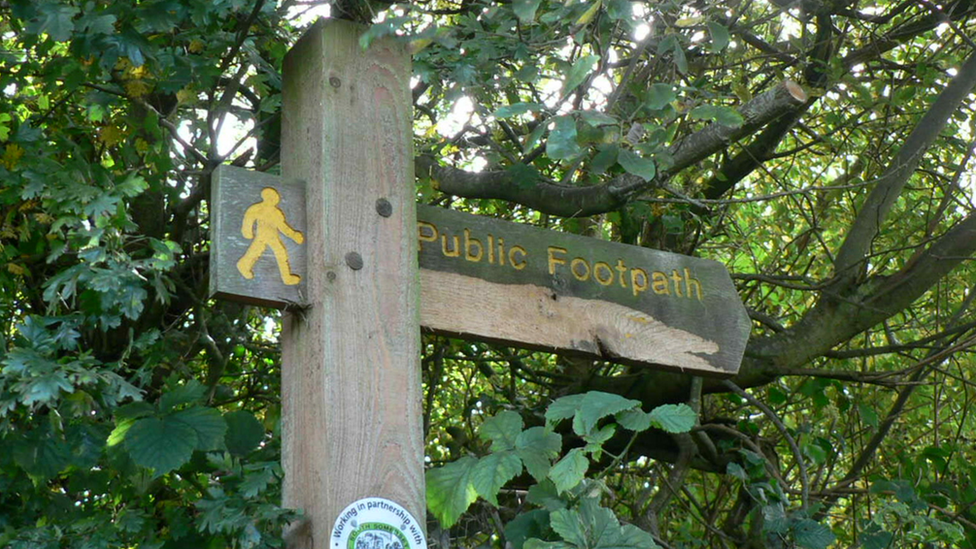Walkers forced to trespass onto open access countryside
- Published
- comments
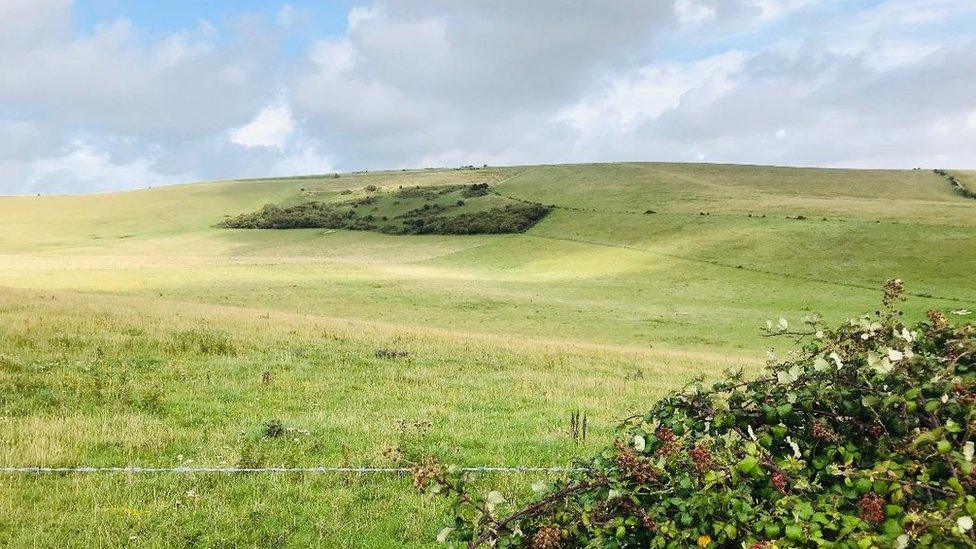
Around 2,500 "access islands" in England include stretches of moorland in Cumbria to fragments of downland, like this one in West Sussex
Walkers are being shut out of 2,500 landscapes and beauty spots where there is a right to roam but no legal right to access them, campaigners say.
In England, 8% of land is designated "open country" but researchers found 2,700 hectares surrounded by private land with no public right of way.
Often the only way to reach these so-called "access islands" is to trespass.
The government said it was considering how to deal with the problem as it maps open access land in the future.
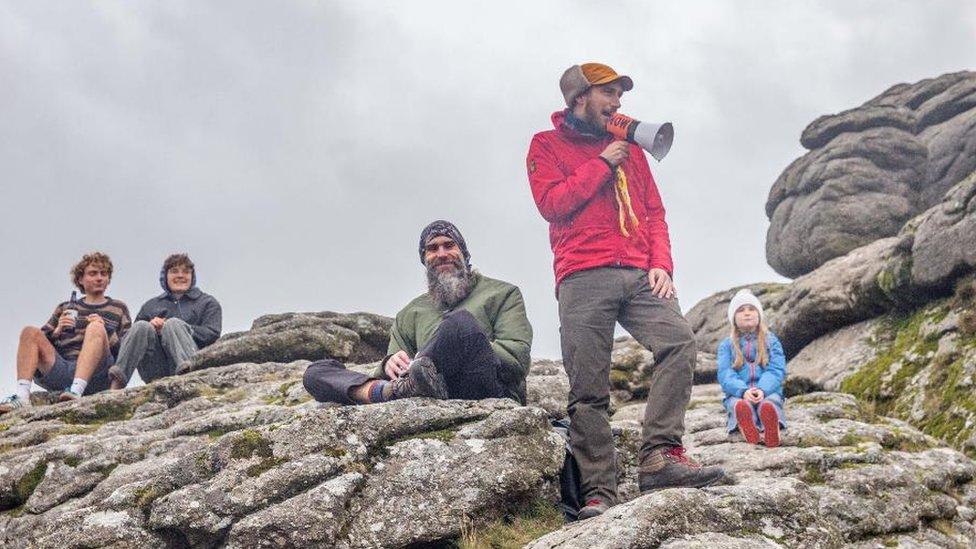
Right to Roam campaigner Lewis Winks (in red) found hundreds of hectares of supposedly "open country" are surrounded by inaccessible private land
Parcels of mountain, moorland, heathland, downland and commons were mapped and designated as "open country" as part of the Countryside and Rights of Way (CRoW) Act 2000, external and a legal right to roam applies there.
But "right to roam" campaigners say that, by combining Natural England's CRoW Act mapping, external with local authority public rights of way maps, they have identified hundreds of fragmented areas of open country which do not have footpaths connected to them or are not close to roads.
Lewis Winks, who carried out the research which highlights a range of landscapes from Cumbrian moorland to Sussex downland, said it was "ridiculous" that people often had to trespass to reach areas where they had a legal right to roam.
"The absurdity of access islands is a clear example of why our current system of access rights in England is broken. Often people don't know where they have a right to go in the countryside," he added.
But the Country Land and Business Association, which represents rural landowners, said there was enough open country that is accessible and that no walker should have to break the law.
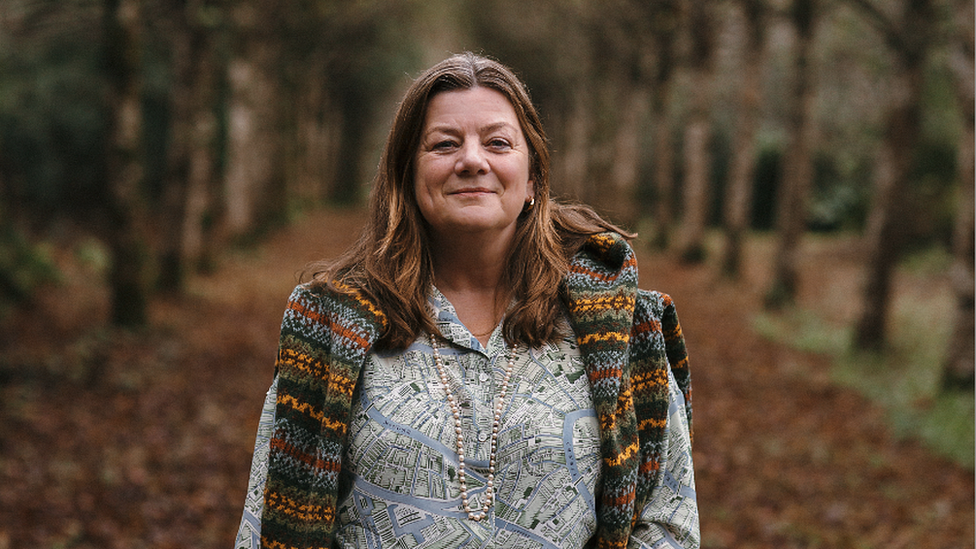
The CLA's Victoria Vyvyan believes there is enough access to ensure walkers can enjoy the English countryside legally
Victoria Vyvyan, the CLA's president, said: "Nobody is forced to trespass. It is a choice and millions of acres of land are publicly accessible without the need to do so."
But she added that the government needed to help farmers and land managers put the necessary infrastructure in place to enable greater access to the countryside.
"Gates, stiles, paths - they all cost money and time in their creation and management," she explained.
The government said that, starting this summer, payments under the government's environmental land management scheme could be used by landowners to develop new permissive routes across farmland to link with otherwise inaccessible open country areas.
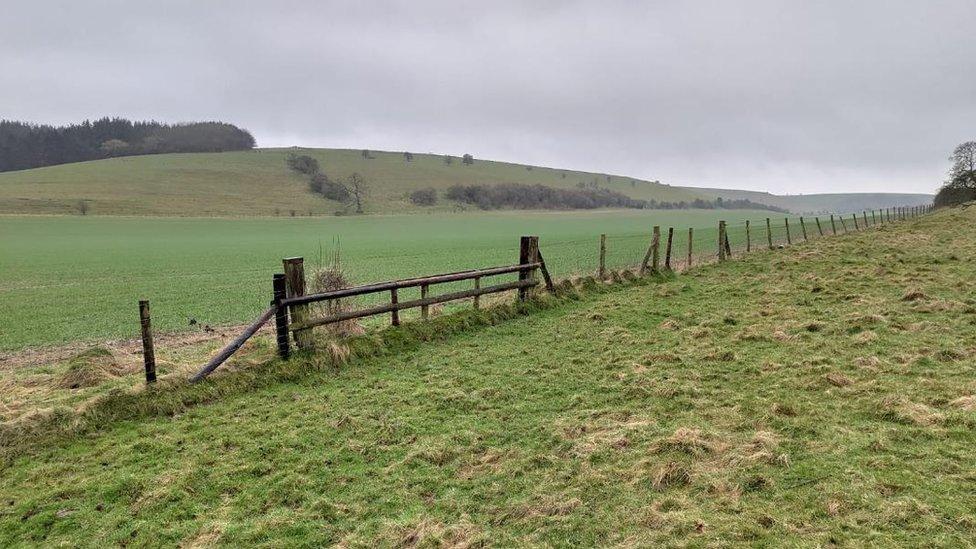
Closed-off areas include downland near Kingston Deverill in Wiltshire which is surrounded by private land
Some "access islands" are simply small scraps of land others are wider landscapes, like Gillcambon, a 210-hectare area of Cumbrian moorland on the edge of the Lake District.
It is designated open access land but, as part of the Greystoke Castle Estate, it is surrounded by private forests and farmland.
There is no permanent public right of way to it but a spokesman for the trust that runs the estate said there is access agreed as part of the government's Higher Level Stewardship grant scheme.
"There is therefore no issue with access to this area of open access land," he told the BBC.
But Mr Winks said there should be a statutory right of access created, as "permission can simply be withdrawn by the landowner - it's just not the same as a right of access."
"Some landowners permit paths - others go out of their way to obstruct the public from getting to these access islands. Fixing this goes well beyond putting in a few permissive paths," he told the BBC.
'Access to nature'
The Right to Roam campaign group is now calling for new laws that would create a right of responsible access across the English countryside, while still allowing exemptions around crops, gardens and sensitive nature sites and enforcing strict rules on dogs and litter.
Natural England has a 2025 deadline to review the open access CRoW maps it issued back in 2004 and 2005.
That is a review called for by many landowners and authorities responsible for managing open access land, including the South Downs National Park Authority.
It currently has 300 areas of open access land, covering 5% of the park, with just 11 "island sites" left that are "isolated from rights of way and other access land with no legal means by which they can be reached".
The park authority said that, while it did not have the powers to enforce access to these sites, it is hoping to put forward new sites for consideration as part of Natural England's review.
Meanwhile, a Defra spokesperson said the government was committed to "increasing access to nature" and added that its Environmental Improvement Plan had set a target for every household to be within a 15-minute walk of a green space or water.
"Whilst rights of way are a matter for local authorities, we are aware of areas of open access land to which there is no legal route of access, and we are considering how to address this as we map open access land," he added.
Related topics
- Published12 January 2024
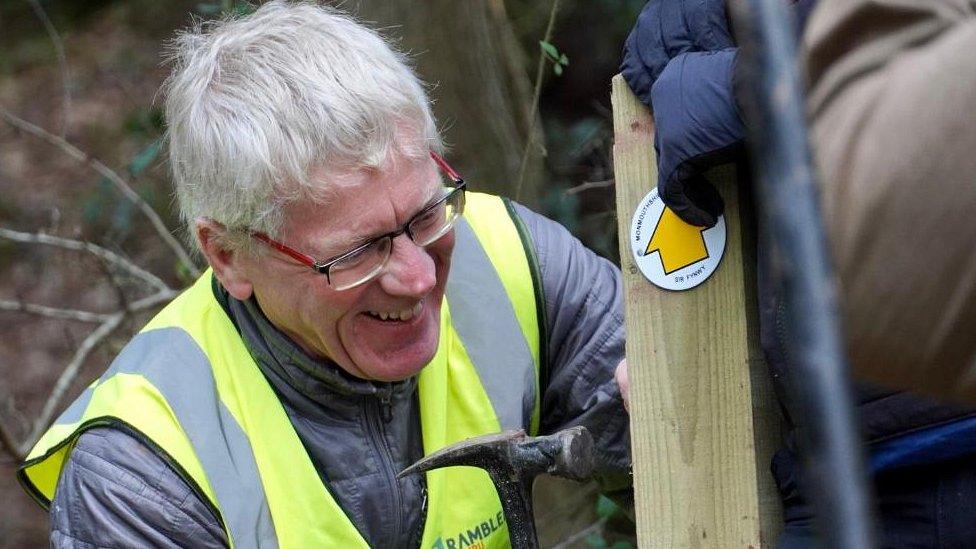
- Published26 January 2023
